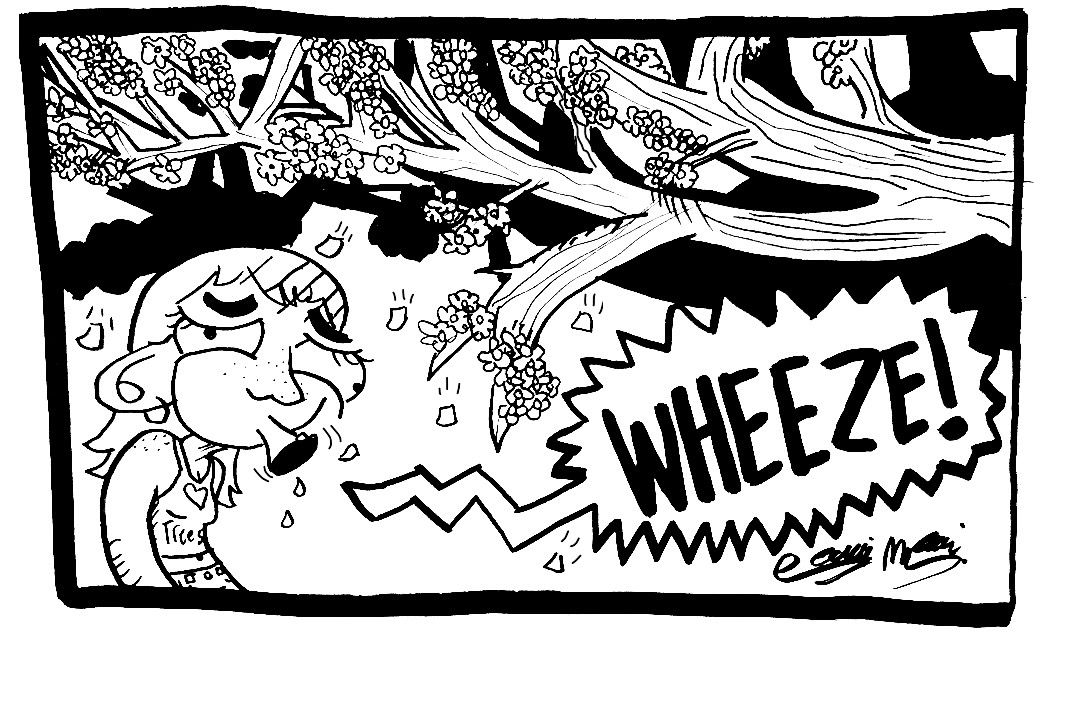When rapper Kanye West used the cameras at NBC’s “A Concert for Hurricane Relief” to tell viewers that “George Bush doesn’t care about black people,” producers didn’t believe their eyes and ears. Before West could turn his sights on Vice President Dick Cheney, the network cut to comedian Chris Tucker and snipped the rapper’s tirade out of the West Coast broadcast. NBC’s response wasn’t surprising; after all, it’s not often that a public figure ventures too far away from the script.
As incendiary as West’s remarks were, the press shouldn’t have been shocked to hear those remarks come out of his mouth. Amid the rave-reviews and platinum-selling success of Kanye West’s newest album, Late Registration, everyone missed the Luis Vutton Don’s biggest contribution. Critics lauded the multi-layered beats and fans appreciated the catchy hooks, but no one noticed how West’s raps and bravado go beyond music.
Kanye not only reached a musical high-note on his latest album, but also a level of social consciousness uncommonly reached in his genre. If his anti-Bush diatribe was too hot for TV, then only the sun can rival Late Registration’s heat. On “Crack Music,” West raps, “How you stop the Black Panthers? / Ronald Reagan cooked up an answer.” For readers who don’t understand what that means, West is suggesting that President Reagan put crack-cocaine in the ghettos of the African American community to pacify the Black Power movement.
Crack’s effect on the black community is not the only socio-political issue addressed on the album. The emcee tackles the American healthcare system on “Roses,” the declining value of the minimum wage on “Heard ‘Em Say” and the darker side of the diamond trade on the remix of “Diamonds from Sierra Leone.”
In the age of the 24-hour news cycle, the press probably forgot the last time West’s mouth made headlines across the country. Only a couple weeks ago, the media showered the rapper with praise after he pleaded with the hip-hop community to end its homophobia.
“Everybody in hip-hop discriminates against gay people,” West told MTV’s Sway. “And I want to just come on TV and just tell my rappers, just tell my friends, ‘Yo, stop it fam.'”
These streaks of political and social activism are hardly unfounded. West’s mother is the child of 1960s civil rights activists and his father was a Black Panther. In addition to their background in race politics, the emcee’s parents both possess at least one doctoral degree. If America had bothered to do the math, the social conscious of “Hip-Hop’s Class Act” would not be so flabbergasting.
Obviously – or maybe not so obviously to the American public – West is more than just a rapper; he’s a leader. His scathing social commentaries are reminiscent of Muhammad Ali’s in-your-face politics during the turbulent 1960s. Ali’s famous declaration that “No Viet Cong ever called me n*****!” parallels West’s recent statement on the role of race in the president’s mishandling of the crisis wrought by Hurricane Katrina.
Like Ali, West’s outspokenness and cocky swagger probably won’t be appreciated for years to come. Before Ali’s heroic story was the subject of a Hollywood blockbuster starring Will Smith, he battled the Supreme Court, lost his boxing license and infuriated sports fans across the country. Today, we say Muhammad Ali was ahead of his time.
Years from now, when we say Kanye West was ahead of his time, we won’t be able to say he didn’t tell us so. “I’m ahead of my time,” rhymes the award-winning emcee on his latest album. “Sometimes years out, so the powers that be won’t let me get my ideas out.”
Well, at least on the left coast.
-The writer is a sophomore majoring in political science and history.




